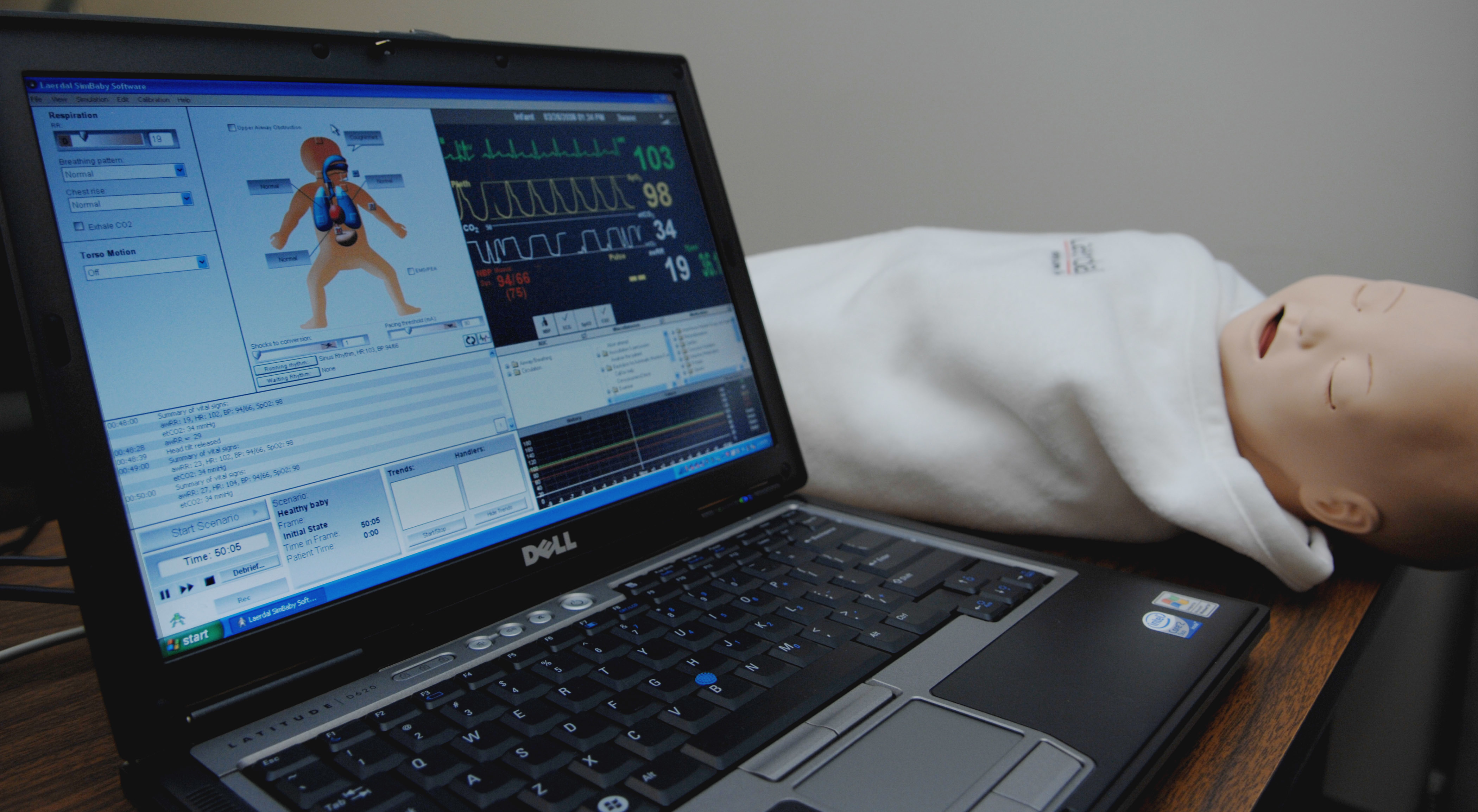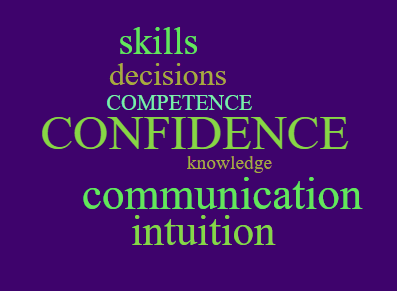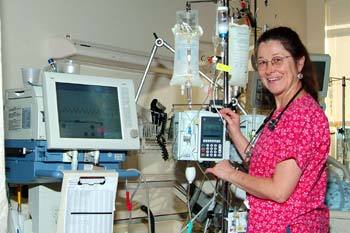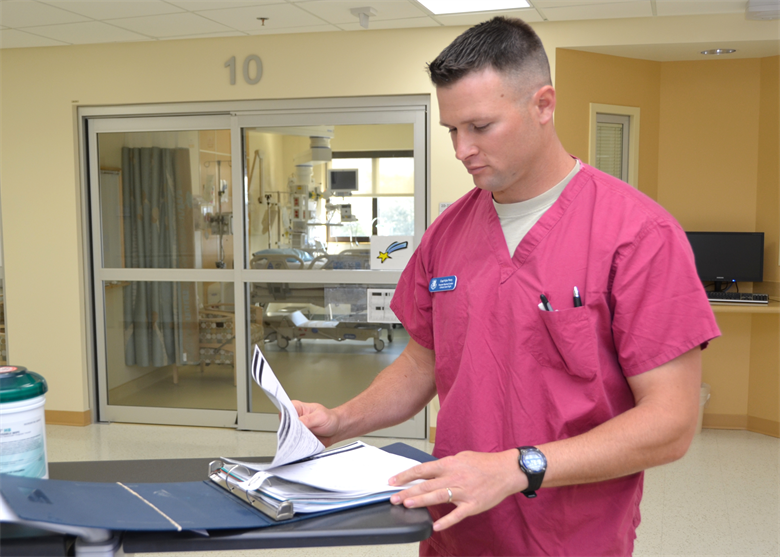"If nursing was a book, then nursing school would be the table of contents," one of my professors said.
Confidence is much sought, especially as a nursing student preparing for the end of school and the beginning of a hard-earned career. Confidence is the state of thinking that your thoughts and behaviors are correct. As a nursing instructor, I have never been fond of the "fake it till you make it" strategy. Faking anything is sometimes easy to see through and can ruin trust.
Confidence is slowly earned.
Gaining competence through practice is how confidence is earned.
As a nursing student, you get approximately 56 12- hour shifts' worth of clinical experience from start to finish. That is certainly not sufficient time to feel confident in nursing! It is enough time to learn how to be safe and to recognize when it is time to stop and ask questions - this is competence.
During those clinical days, much of what occurs is at the mercy of the day - lots of admissions, low census, everyone is on PO meds, your assigned patient pulled out their IV and now is going home, a C. Diff outbreak, a full moon - you get the picture!

Short of constructed experiences in the simulation lab, sometimes your clinical experiences are out of the instructor's control, meaning everyone leaves school with a slightly different experience and most feel insecure about their first nursing assignments.
The nursing student or newly graduated nurse can be confident in their ability to accomplish nursing goals or tasks.
What is needed to support this ability?

Confidence in knowledge
It is completely okay to not know the answer, direction, decision, etc. Nursing is vast and so are the human conditions requiring nursing care! It is even acceptable, in most cases, to tell your instructor, preceptor, or patient, "I don't know the answer, but I will find out."
Knowing what your resources are is more important than knowing the answer. Hospital policies and procedures, the staff educator, and provided computer and text references are all excellent places to find the answers that are needed. After you have been in one facility and one area of nursing long enough, the answers will just roll out of you like a walking encyclopedia or Google database. This usually happens around the second year of practice.
Confidence in skills
Skills just take time to develop. Muscle memory requires repeated attempts to get a thing done. There is no way around it. In the beginning, observe those skills that you need when other nurse's perform them - inserting an IV or NG tube, accessing an implanted port, starting a drip, running a code.
Eventually, you have to just jump in there and get it done. As a student, the instructor will usually be by your side. As a new nurse, a preceptor will be there. Even after orientation is over, if needed, grab a trusted and good nurse or the staff educator and ask them to come watch you.

Confidence in decisions
Throughout your career, there will be times when you doubt whether you did all that you could have or should have. It is only natural when faced with so much responsibility. However, when you are a new nurse, in a new area of nursing, or in a new facility, even the most routine tasks can leave you wondering if what you have done is correct. Experience is a great teacher, but no nurse wants that experience to come at the cost of someone in their care.
First, when you make a mistake, take full credit for it, no matter how small or large. Then, consider what the lessons are in that mistake - how can you prevent it in the future? what happened that was within your control? Learning from these situations is a terrific way to build confidence, even if it doesn't feel good in the moment that the mistake occurs.
Confidence in communication
Do you often find that you feel inadequate when "put on the spot" to answer a question? This usually does not reflect a weakness in skill or knowledge, but simply a reduced ability to communicate when under scrutiny. It is often the feeling that, "I would have known if you had not asked me!"
Speaking to a health care provider in person or on the phone is another situation that can leave a new nurse feeling less confident in communication. Nothing quite prepares you for communicating with a health care provider. Initially, it is nerve-wracking!
Anticipate what is required and have it written down. It doesn't have to all be in your head- few can manage that!
Do you think your instructor or preceptor wants the side effects of a drug you are about to administer? Make a few short notes to remind yourself and use those notes!
Are you calling the HCP about a a patient's deteriorating status? Naturally, he or she will need vital signs, most recent labs, an idea of what the person looks like - and they do not have time to wait while you look it up. You called them! Be prepared.

Confidence in intuition
Nursing is a science. It is rooted in evidence. So where does intuition come in to play? Nursing is also an art – the creative use of self, based on expertise.
Expertise is the mastery of nursing knowledge, skills, communication, and decision making in your area of nursing. Intuition is the intersection of your areas of expertise. Intuition is often used to avoid a crisis.
Intuition is a coveted and almost undefinable skill that takes time to develop. At first, intuition is little more than recognizing that something is wrong. Later, intuition becomes actions that you begin to implement, sometimes without even being able to say why - it's just a gut feeling. A gut feeling that will often save your patient before anyone knows why they need saving at all.
The more practice that you get, the sooner your confidence will soar.
Images:
http://www.airforcemedicine.af.mil/MTF/RAF-Alconbury/News-Events/Article/427125/keeslers-emergency-room-first-in-air-force-to-use-electronic-medical-records-
https://www.midcoasthealth.com...
http://www.af.mil/News/Article...
Feature image credit https://www.midcoasthealth.com...




